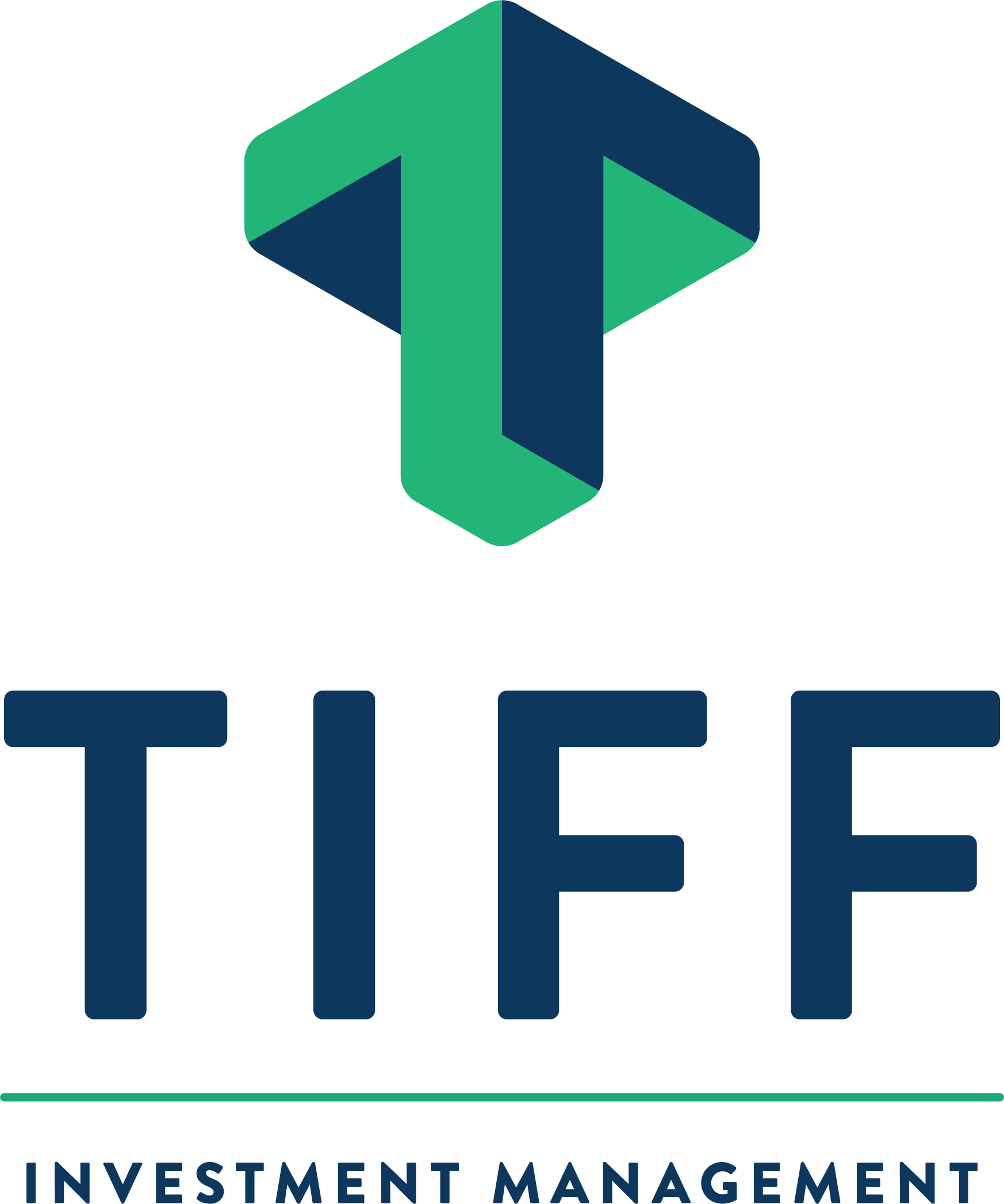

TIFF Advisory Services, LLC

1.6
Pennsylvania, United States
September 2025
Investment advising
Service with Minor Environmental Footprint
United States
TIFF Investment Management is an independent, employee-owned investment firm specializing in OCIO services and alternative investment strategies, including private equity, venture capital, and hedge funds. Founded in 1991, with nearly 9Bi in assets under management, we draw on decades of experience to serve nonprofits and purpose-driven organizations. As a Certified B Corporation, we embed accountability, transparency, and sustainability into how we operate and invest. We combine nonprofit expertise with institutional-quality access, partnering with long-term investors to deliver sustainable growth and enduring results that can advance their objectives over time. Learn more at www.tiff.org.* TIFF assets under management (AUM) is as of 6/30/25 and includes discretionary and non-discretionary client assets for which TIFF affiliates provide investment management or advisory services. The private markets portion of TIFF AUM is calculated based upon fund net asset value plus unfunded commitments. Calculation of TIFF AUM differs from the calculation of regulatory assets under management in TIFF’s Form ADV filings with the SEC and may differ from the AUM calculation methodologies used by other investment managers.
Overall B Impact Score
Governance 7.3
Governance evaluates a company's overall mission, engagement around its social/environmental impact, ethics, and transparency. This section also evaluates the ability of a company to protect their mission and formally consider stakeholders in decision making through their corporate structure (e.g. benefit corporation) or corporate governing documents.
What is this? A company with an Impact Business Model is intentionally designed to create a specific positive outcome for one of its stakeholders - such as workers, community, environment, or customers.
Workers 31.3
Workers evaluates a company’s contributions to its employees’ financial security, health & safety, wellness, career development, and engagement & satisfaction. In addition, this section recognizes business models designed to benefit workers, such as companies that are at least 40% owned by non-executive employees and those that have workforce development programs to support individuals with barriers to employment.
Community 19.8
Community evaluates a company’s engagement with and impact on the communities in which it operates, hires from, and sources from. Topics include diversity, equity & inclusion, economic impact, civic engagement, charitable giving, and supply chain management. In addition, this section recognizes business models that are designed to address specific community-oriented problems, such as poverty alleviation through fair trade sourcing or distribution via microenterprises, producer cooperative models, locally focused economic development, and formal charitable giving commitments.
Environment 7.9
Environment evaluates a company’s overall environmental management practices as well as its impact on the air, climate, water, land, and biodiversity. This includes the direct impact of a company’s operations and, when applicable its supply chain and distribution channels. This section also recognizes companies with environmentally innovative production processes and those that sell products or services that have a positive environmental impact. Some examples might include products and services that create renewable energy, reduce consumption or waste, conserve land or wildlife, provide less toxic alternatives to the market, or educate people about environmental problems.
Customers 29.2
Customers evaluates a company’s stewardship of its customers through the quality of its products and services, ethical marketing, data privacy and security, and feedback channels. In addition, this section recognizes products or services that are designed to address a particular social problem for or through its customers, such as health or educational products, arts & media products, serving underserved customers/clients, and services that improve the social impact of other businesses or organizations.
What is this? A company with an Impact Business Model is intentionally designed to create a specific positive outcome for one of its stakeholders - such as workers, community, environment, or customers.